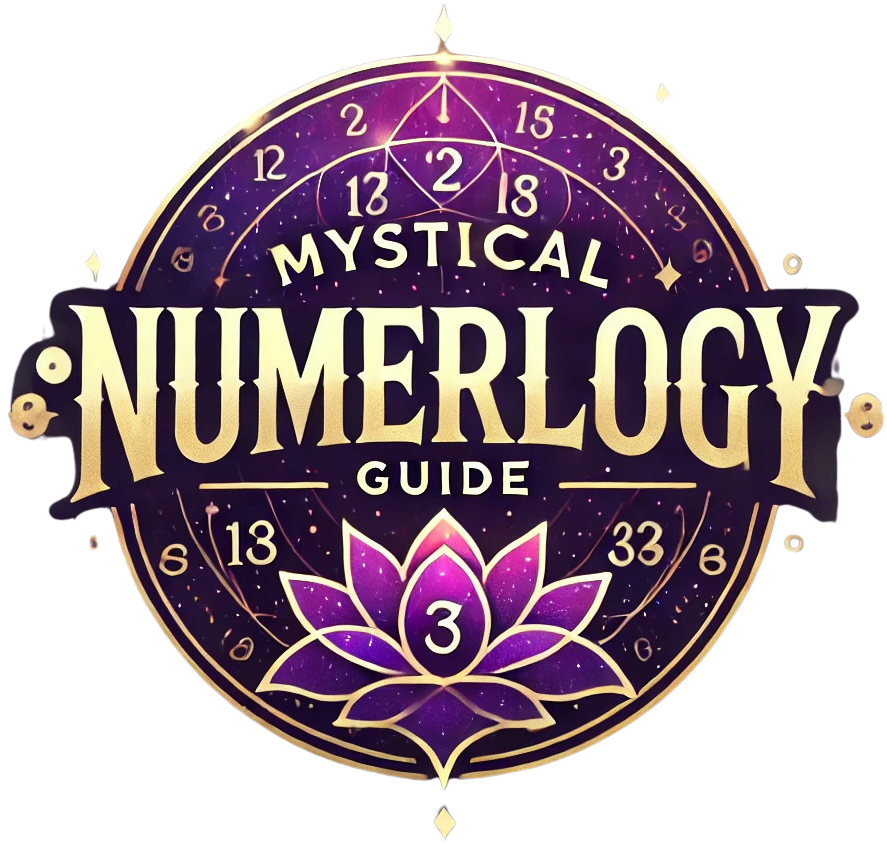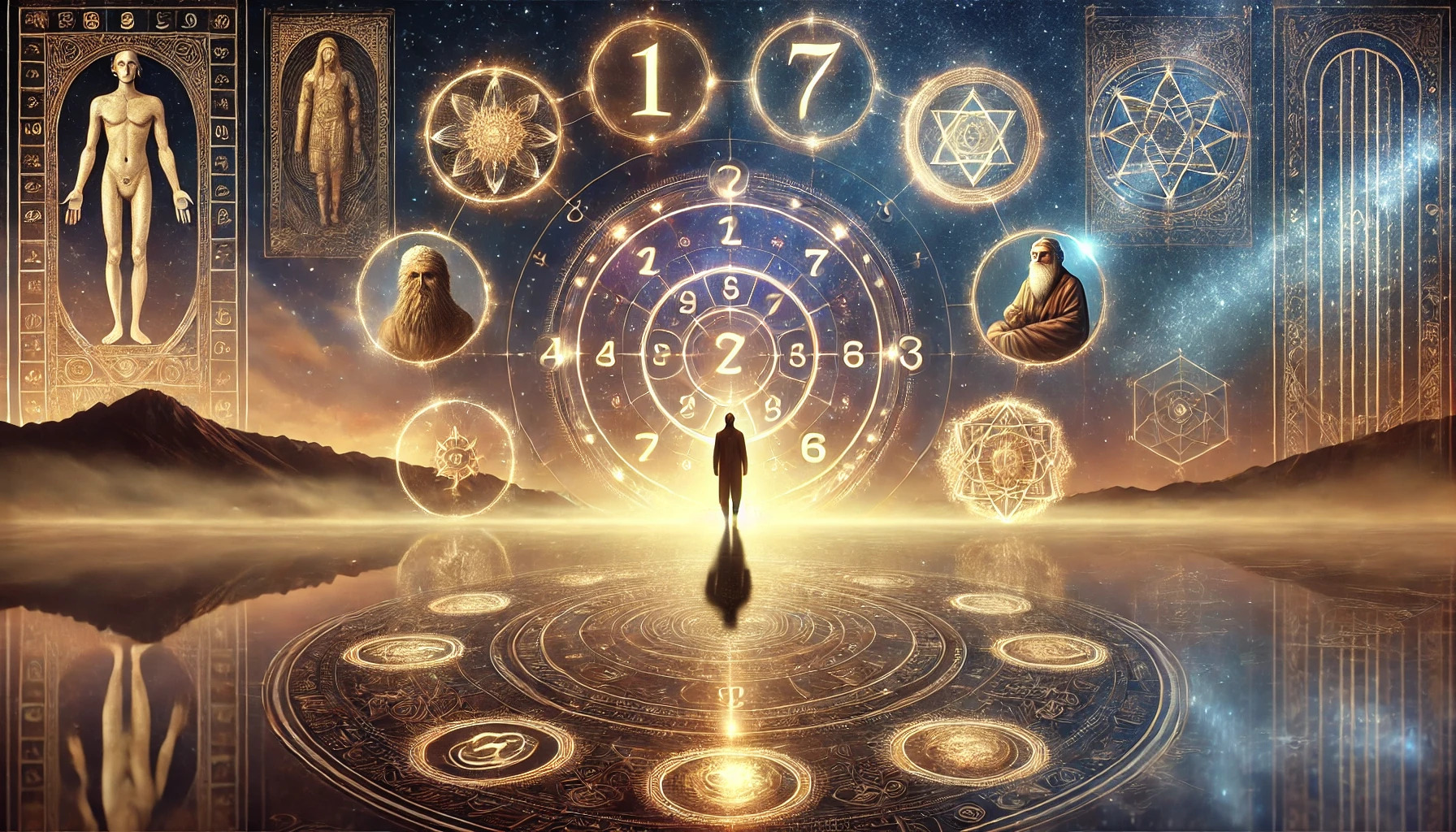Numerology and archetypes share a deep connection that helps people understand themselves and their life paths. By exploring these concepts, one can uncover personal strengths, challenges, and potential life lessons that align with their unique numbers and archetypes. This journey not only aids in self-discovery but also offers valuable insights into relationships and career choices.
In numerology, specific numbers correspond to various archetypes, each representing different traits and energies. Understanding this relationship allows individuals to harness the power of these archetypes, leading to more purposeful living.
When one recognizes how numerology informs their personal archetypes, it opens doors to greater self-awareness and personal growth. With insights gained from this exploration, individuals can make informed decisions that resonate with their true selves.
Exploring Numerology
Numerology is a fascinating study of numbers and their significance in our lives. It has a rich history and is connected to various cultures. This section covers the origins, key numbers, and cultural interpretations of numerology.
History of Numerology
Numerology dates back thousands of years. Early civilizations, such as the Babylonians and Egyptians, used numbers for various purposes, including astrology and religion.
Around 500 BC, the Greek philosopher Pythagoras played a vital role in shaping numerology. He believed that numbers had special meanings and could reveal insights about the universe.
Over time, numerology spread to different parts of the world, evolving with each culture. Today, it integrates both ancient practices and modern interpretations.
Core Numbers in Numerology
In numerology, key numbers hold special importance. These include the Life Path Number, Destiny Number, and Soul Urge Number.
- Life Path Number: Calculated from one’s birth date, it reveals essential characteristics and challenges.
- Destiny Number: This number comes from the full name at birth and indicates life purpose and potential.
- Soul Urge Number: Derived from the vowels in a name, it reflects inner desires and motivations.
Each number from 1 to 9 has unique meanings. Master numbers like 11, 22, and 33 carry greater spiritual significance.
Numerology in Different Cultures
Different cultures interpret numerology in unique ways. In Chinese culture, certain numbers are considered lucky or unlucky. For instance, the number 8 is seen as prosperous, while the number 4 is often avoided due to its sound, which is similar to the word for death.
In Indian traditions, numerology is often linked with astrology. Both systems provide insights into personality, destiny, and life path.
Western numerology, influenced by Pythagorean principles, focuses on names and dates for personal insights. Each culture adds its flavor, enriching the practice and making it relevant in various contexts.
Understanding Archetypes
Archetypes serve as universal symbols and patterns found throughout human experience. They help to explain behaviors, thoughts, and roles in society. This section covers the foundational theories behind archetypes, some common examples, and their impact in literature and media.
Carl Jung’s Archetypal Theory
Carl Jung, a Swiss psychiatrist, introduced the concept of archetypes within his psychological framework. He believed that archetypes are innate, universal symbols found in the collective unconscious of humanity. These symbols influence how people think and act.
Jung identified several archetypes, including the Hero, the Shadow, and the Anima/Animus. Each serves a unique role in personal development and storytelling. For instance, the Hero embarks on a journey, faces challenges, and ultimately transforms as a result. This transformation reflects an essential aspect of human growth.
Common Archetypes and Their Meanings
Common archetypes include:
- The Hero: Represents courage and the desire to overcome obstacles.
- The Mentor: Offers guidance and wisdom during the journey.
- The Shadow: Embodies fear and hidden aspects of oneself, often causing inner conflict.
Each archetype reflects specific traits and behaviors. They reveal patterns in human experiences, providing a way to understand actions and motivations. Recognizing these archetypes can make it easier for individuals to identify their roles in stories and life.
Archetypes in Literature and Media
Archetypes play a significant role in literature and media, shaping characters and plotlines. For example, classic tales like “The Hero’s Journey” utilize archetypes to tell compelling stories. By following these familiar patterns, authors connect with readers on a deeper level.
In movies, archetypes can help viewers understand characters quickly. For instance, a villain might display traits associated with the Shadow, while the protagonist embodies the Hero. These recognizable traits make characters relatable and memorable, enhancing the narrative experience.
Interconnection of Numerology and Archetypes
Numerology and archetypes are closely related. Each number in numerology holds unique meanings and characteristics that reflect specific archetypal energies. Understanding this connection can provide deeper insights into personality traits, life events, and personal growth.
Archetypes Represented by Numbers
Each number from 1 to 9, as well as the master numbers 11, 22, and 33, represents distinct archetypes. For example, the number 1 symbolizes leadership and independence, while 2 represents cooperation and sensitivity. The number 3 embodies creativity and self-expression, and the number 4 stands for stability and order.
Master numbers also have profound meanings. The number 11 is often linked to intuition and spiritual insight, while 22 is about building dreams into reality. Finally, 33 represents selflessness and compassion. Understanding these connections helps individuals recognize their strengths and challenges linked to each number.
Numerology in Archetypal Stages of Life
In a person’s life, different stages often align with particular numbers in numerology. For instance, the early years may align with the number 1 to signify new beginnings and self-discovery. Adolescence often connects with the number 5, representing change and exploration.
The later stages of life can correspond with numbers like 8, which signifies power and ambition. As individuals progress through these stages, they may notice how the energies of these numbers reflect their experiences and personal growth. This insight can guide them in navigating life’s challenges.
Numerological Patterns in Archetypal Events
Numerological patterns can also reveal insights during significant events in life. For instance, wedding dates or important career milestones can be analyzed using numerology. Such events may carry the energy of specific numbers, providing clarity on the nature of the event.
Life-changing occasions often resonate with certain archetypal qualities. A wedding date that adds up to a number 6 can signify harmony and family values, whereas a career change aligning with 1 may highlight new beginnings. Recognizing these patterns helps individuals harness the energies present during key life events.
Practical Applications
Numerology and archetypes offer valuable insights into personal growth and can enhance counseling practices. Through understanding numbers and their meanings, individuals can gain a deeper appreciation of themselves and their life journeys.
Personal Growth and Self-Discovery
Many people use numerology as a tool for self-reflection. By calculating their life path number, they can uncover unique traits and tendencies. This number reveals strengths, weaknesses, and potential life challenges.
For example, a life path number of 7 may suggest a person is introspective and analytical. This understanding can guide individuals in choosing suitable careers or personal projects.
Archetypes provide further depth by reflecting key personality aspects. Recognizing these archetypes can help individuals identify their emotional responses and behavioral patterns. By embracing these insights, one can foster personal growth and make informed decisions.
Numerology and Archetype in Counseling
Counselors often incorporate numerology and archetypes to help clients explore their identities. By analyzing a client’s numbers, counselors can identify themes in their lives. This can bring clarity to personal struggles and recurring challenges.
For instance, a counselor might notice that a client with a life path number of 3 often faces issues related to communication. By understanding this pattern, they can work together to develop effective strategies for improvement.
Archetypes can also be used during sessions to address specific issues. A counselor can encourage clients to connect their experiences with common archetypes. This connection can empower clients, allowing them to see their struggles in a broader context and strengthen their journey toward resolution.
Numerological Archetypes in Spiritual Traditions
Numerology is rich in meaning and connects deeply with various spiritual traditions. Different cultures interpret numbers as symbols that reveal insights about human nature and the universe. Understanding these archetypes can offer guidance and clarity.
Eastern Spiritual Systems
In Eastern traditions, numerology is often intertwined with philosophies like Hinduism and Buddhism. Numbers hold significant meanings that relate to cosmic energies and personal destiny. For instance, the number eight is linked to prosperity and balance.
The practice of numerology here often involves meditation and spiritual rituals. It helps practitioners reflect on their life paths and karmic lessons. In Hinduism, each number is seen as a representation of elements that shape one’s soul journey.
Western Esoteric Traditions
In Western esoteric practices, numerology aligns closely with Kabbalistic teachings. Each number corresponds to divine principles and represents specific archetypes. For example, the number three symbolizes creativity and growth.
Additionally, these traditions explore numbers through tarot and astrology. Each card and astrological sign has a numerical value that can influence interpretations. This intertwining of numbers with spiritual guidance aids individuals in self-discovery and personal development.
Criticisms and Debates
Numerology and archetypes spark discussions among scholars and enthusiasts. These debates often center on the scientific validation of numerology and the interpretation of archetypes in various contexts. Understanding these criticisms can provide clarity on the broader implications of these concepts.
Scientific Scrutiny of Numerology
Many critics argue that numerology lacks empirical support. This approach is often viewed as pseudoscience since it does not adhere to the rigorous standards of scientific inquiry.
Critics emphasize the absence of controlled studies, pointing to the reliance on anecdotal evidence. They also note that conclusions drawn from numerological practices can be subjective.
Numerologists counter these claims by stating that their practices offer insights into personal development. They argue that while numerical interpretations may seem unscientific, they still hold value for believers. This ongoing discourse raises questions about the nature of knowledge and belief.
Debating the Validity of Archetypes
The concept of archetypes, popularized by Carl Jung, also faces critique. Some scholars question whether archetypes are universal or culturally specific. This debate highlights the complexity of identifying true archetypal patterns across diverse societies.
Supporters argue that archetypes reflect shared human experiences, while opponents believe they oversimplify unique cultural narratives. Critics claim such generalizations may overlook individual variations within cultures.
In literature, the application of archetypes can also lead to oversimplified narratives. This may result in characters and plots that lack depth. While comments around archetypes can align with certain frameworks, the debate continues on their broader relevance.

